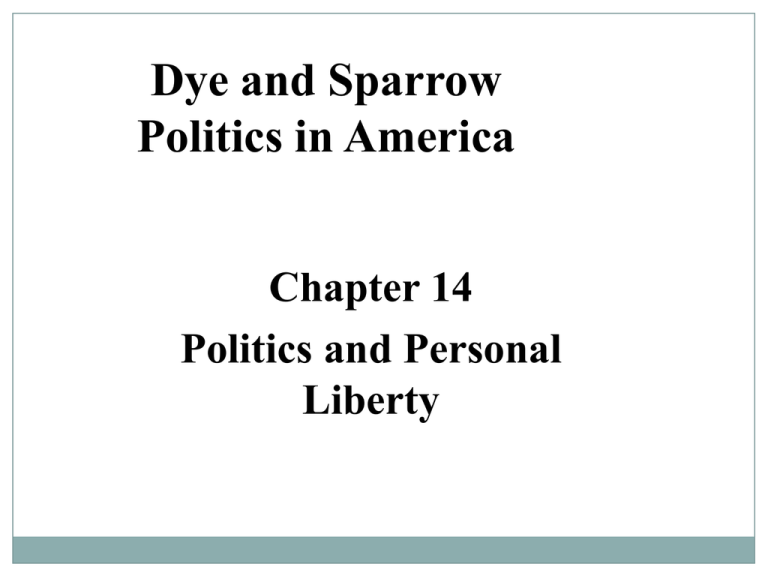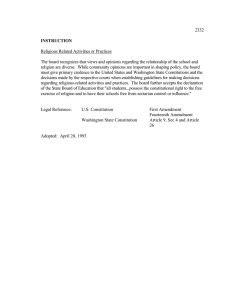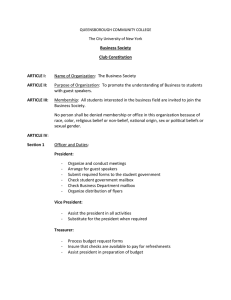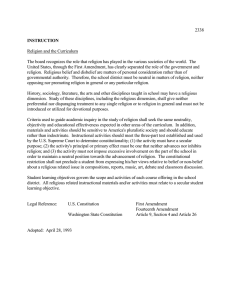Dye and Sparrow Politics in America Chapter 14 Politics and Personal
advertisement

Dye and Sparrow Politics in America Chapter 14 Politics and Personal Liberty Democracy and Individual Liberty According to Professor Dye, the purpose of the Constitution and Bill of Rights is to place personal liberty beyond the reach of government Definitions of Civil Liberties 1. James MacGregor Burns: “Rights of all persons that cannot be denied by governmental power: freedom of conscience, religion, or expression; generally, the freedoms secured by the First Amendment” 2. Cummings and Wise (p89): “Are the fundamental rights of a free society that are protected by the Bill of Rights” I like 2nd definition as it is more expansive The 1st amendment of our Constitution protects individuals from govt laws that interfere w/the freedom of religion and freedom of expression—as well as protection of written and symbolic speech, and freedom of the press, and freedom of association (the recent SCT-Boy Scouts decision based on this right)—other important basic liberties NOT embedded in the 1st Amendment a) 1st Amendment (pA-8 of Appendix in C&W text): “Congress shall make NO law respecting an establishment of religion, or prohibiting the free exercise thereof; or abridging the freedom of speech, or of the press; or the right of the people peaceably to assemble, and to petition the govt for a redress of grievances” The 2nd amendment protects the "right of the people to keep and bear arms" and of course is the subject of a long standing debate that really centers on the concepts of ORDER versus FREEDOM th 4 Amendment The covers freedom from unreasonable searches and seizures. The 5th Amendment covers right NOT to incriminate one’s self, and also: right to Due Process, Grand Jury, Double Jeopardy among others th 6 Amendment: In criminal prosecutions, right to speedy & public trial and to have public defender if necessary th 7 Amendment: In less than criminal matters, right of trial by jury “is preserved” th 8 Amendment: No excessive bail or fines; and No cruel and unusual punishment shall be inflicted The 9th Amendment = "The enumeration in the Constitution, of certain rights, shall not be construed to deny or disparage others retained by the people” **It essentially means that the rights listed in preceding amendments (e.g., speech, religion, fair trial) are not the only rights the people have The 10th Amendment = "The powers not delegated to the United States by the Constitution, nor prohibited by it to the States, are reserved to the states respectively, or to the people” *It affirms the sovereignty of the states and makes it clear that the federal government's powers are limited to those granted in the Constitution




